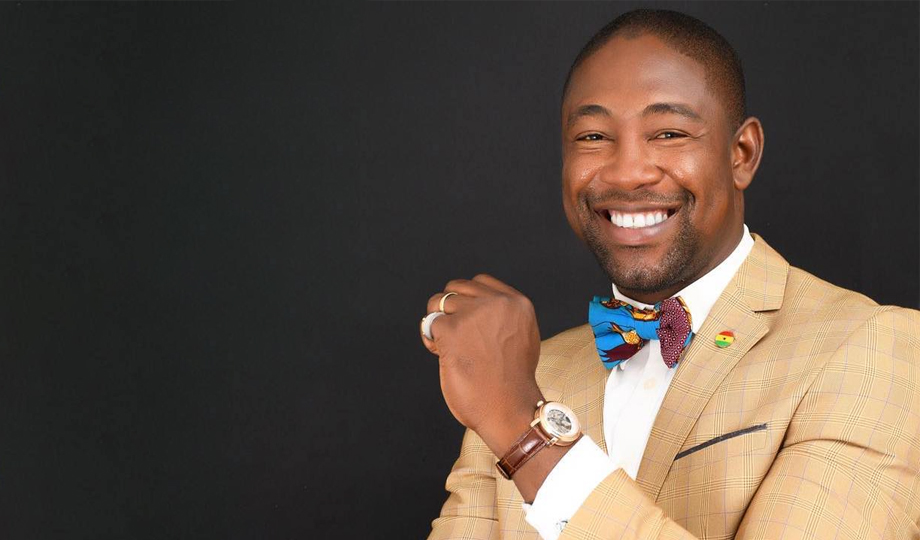How do you successfully distribute vaccines in a country where two-thirds of the population state they won’t take it?
That is the tricky conundrum currently facing Dr Bernard Okoe-Boye, a doctoral researcher at Brunel University London who couples his studies with being a key expert on the team overseeing the roll-out of vaccines in Ghana, a nation that last week started on its ambitious plans to vaccinate the majority of its 30m population by the end of the year.
“The biggest challenge we face with distributing the vaccines has to do with vaccine hesitancy. The great majority of the population are sceptical about vaccines,” said Dr Okoe-Boye, part of the team that helped secure millions of AstraZeneca jabs through the COVAX programme, a global initiative aimed at the equitable distribution of COVID-19 vaccines.
A recent survey suggested that 64% of Ghanaians would refuse to take a vaccine when offered one, something Dr Okoe-Boye, who until recently served as Ghana’s Deputy Health Minister, puts down to misplaced concerns about the long-term effects of the vaccine, and a lack on understanding about how it has been developed.
“Ghanaians have shown scepticism despite our history with immunisation because some videos were shared on social media,” said Dr Okoe-Boye, pointing to widely shared videos which allegedly show a group of white men talking about COVID-19 vaccines being used as a means of sterilising black people. There have also been videos shared purporting that some of those who have had a vaccine have died shortly afterward.
“These social media campaigns have driven anxiety and fear amongst the public. Some citizens are also anxious about the vaccines because they claim the vaccines have been developed in too short a time so something might be wrong.”
To help build acceptance and encourage people to take the vaccine when offered, Dr Okoe-Boye and other members of Ghana’s COVID-19 Taskforce have developed a series of measures aimed at dispelling myths and tackling the issue head-on, including having the President, the Vice President, and their spouses receive their vaccines publicly, and developing an educational programme to help inform people about how vaccines are made and how extensive trials have confirmed their safety.
“We have also gotten influential people in society to get the vaccine publicly and to serve as vaccine ambassadors,” said Dr Okoe-Boye. “The people being employed for this include people from the media, the security services and the clergy.”

Dr Okoe-Boye is a doctoral researcher with Brunel Global Public Health Academy and is supervised by Dr Nana Anokye, Professor Subhash Pokhrel and Dr Anastasia Anagnostou.
His research title is: "A Clinical, process and economic evaluation of incentive packages for healthcare force in Ghana."
By facing the issues head-on, Dr Okoe-Boye hopes the team will have successfully convinced 20m people to get vaccinated before the end of 2021.
If hesitancy can be overcome, Ghana is well equipped to roll out vaccines, having developed an effective immunisation programme over the past four decades, with the country having so far successfully eliminated maternal and neonatal tetanus and severely limited the spread of measles.
Ghana’s current ‘cold-chain infrastructure’ – its uninterrupted refrigerated supply chain – currently ranges from 2°C to 8°C, allowing for the widescale distribution of the two-shot AstraZeneca vaccine, which the country hopes to have given a first dose of to nearly 1m people by the end of March. Pfizer and Moderna’s vaccines are currently less suitable for roll-out in Ghana due to their much lower temperature requirements.
To help maximise the benefits of the first batch of vaccines, Ghana will prioritise healthcare workers to receive their shots first, alongside frontline politicians, those over 60, and younger people with underlying health conditions that make them particularly susceptible to the disease.
“The second segment is made up of security services, teachers and other public servants,” said Dr Okoe-Boye, “whilst the third segment is the rest of the population except those below 18 years and pregnant women.
“The fourth group consists of those below 18 years, and pregnant women when a vaccine is approved as safe for use in those belonging to this group.”
Whilst significant challenges remain, Dr Okoe-Boye and his colleagues remain confident that they can hit their targets and that with access to the right information and expertise, vaccine hesitancy in Ghana can be overcome.
Reported by:
Tim Pilgrim,
Media Relations
+44 (0)1895 268965
tim.pilgrim@brunel.ac.uk